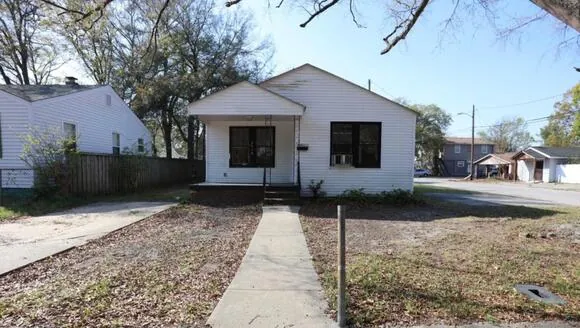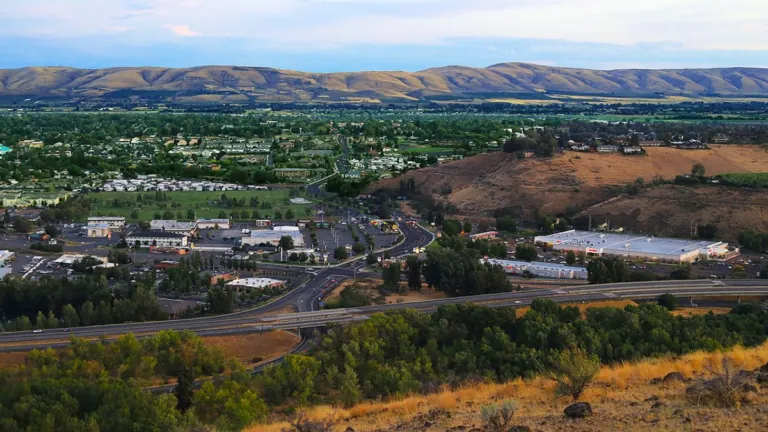This Town Has Been Named the Poorest in South Carolina
Blackville, South Carolina, has been identified as the poorest town in the state, according to data from the U.S. Census Bureau’s American Community Survey. The median household income in Blackville stands at a mere $19,583, significantly lower than the statewide median household income of $58,234. Additionally, the poverty rate in Blackville is a staggering 35.8%, compared to the statewide poverty rate of 14.5%. These stark statistics shed light on the economic challenges faced by the town and have led to its designation as the poorest town in South Carolina. In this article, we will explore the factors contributing to Blackville’s economic struggles and suggest potential solutions to address these issues.
Historical Factors:
Dependence on Agriculture:
Blackville’s historical economy was deeply rooted in agriculture, with cotton farming playing a central role. However, the decline of the farming industry in the region, driven by factors such as mechanization, globalization, and changing consumer preferences, resulted in significant job and income losses. The shift away from agriculture left many residents with limited employment opportunities.
Structural Factors:
Geographical Isolation:
Blackville’s geographical isolation, situated in a rural area with limited access to major transportation networks, has hampered economic development. The lack of easy access to markets, suppliers, and skilled labor has made it difficult for businesses to invest and expand in the town.
Limited Educational and Training Opportunities:
The quality of education in Blackville has historically been lower than in more affluent areas. This, coupled with limited access to vocational training and higher education, has restricted job opportunities for residents and perpetuated a cycle of poverty.
Discrimination and Social Exclusion:
Blackville’s history of racial discrimination and social exclusion has contributed to the town’s economic challenges. Marginalization of minority groups has limited their access to resources, opportunities, and fair wages, further exacerbating economic disparities.
Contemporary Factors:
Loss of Manufacturing Jobs:
The decline of manufacturing industries in the United States has had a significant impact on Blackville’s economy. Many manufacturing jobs, which were once a major source of employment in the town, have been moved overseas or replaced by automation, leaving many residents without work.
Outsourcing and Technological Advancements:
The rise of outsourcing and technological advancements has made it easier for businesses to automate tasks and move operations to lower-cost locations. This has further reduced job opportunities in Blackville and made it challenging for businesses to compete in a global economy.
Limited Infrastructure and Public Services:
Blackville’s infrastructure, including roads, utilities, and public services, is often outdated and in need of repair. This lack of investment has discouraged businesses from investing in the town and has made it difficult for residents to access basic services.
Addressing Blackville’s Economic Challenges:
To improve the economic outlook for Blackville, a comprehensive approach is needed, taking into account both the historical and contemporary factors contributing to these challenges. Here are some potential solutions:
Revitalizing the Agricultural Sector:
Investing in sustainable agriculture practices, promoting agritourism, and supporting local farmers can help to diversify the economy and create new employment opportunities. Initiatives to modernize farming techniques and expand markets for agricultural products could help rejuvenate this sector.
Promoting Entrepreneurship and Small Business Growth:
Providing support and resources for small businesses, encouraging innovation, and fostering a business-friendly environment can help stimulate economic growth. Offering incentives for entrepreneurs to start businesses in Blackville and providing access to funding and mentoring can make a significant impact.
Improving Education and Skills Training:
Investing in early childhood education, expanding access to vocational training, and promoting higher education can help residents develop the skills needed for employment in today’s economy. By ensuring that the workforce is adequately trained and prepared for the job market, Blackville can attract new businesses and industries.
Addressing Socioeconomic Disparities:
Addressing racial discrimination, promoting equal access to opportunities, and fostering social inclusion can help break the cycle of poverty and create a more equitable society. Community programs and initiatives aimed at bridging socioeconomic gaps can lead to positive change.
Investing in Infrastructure and Public Services:
Upgrading roads, utilities, and public services can attract businesses, improve livability, and make it easier for residents to access essential services. Public-private partnerships, government grants, and community development initiatives can help fund these improvements.
Conclusion:
Overcoming Blackville’s economic challenges will require a concerted effort from all sectors of the community, including government, businesses, non-profit organizations, and residents themselves. By working together to address the root causes of poverty and underemployment, Blackville can create a more prosperous future for its residents. By implementing a combination of historical and contemporary solutions, this impoverished town in South Carolina can work toward economic revitalization and a brighter future for its residents.
Read More:







